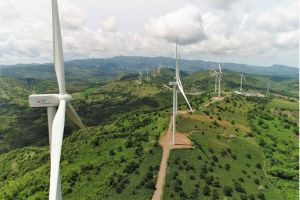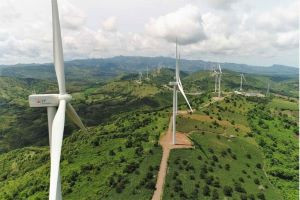Popular Reads
Top Results
Can't find what you're looking for?
View all search resultsPopular Reads
Top Results
Can't find what you're looking for?
View all search resultsHow COP28 copes with just energy transition
Policymakers must work hand-in-hand with businesses and civil society organizations to rapidly upscale renewable energy to open up universal access to affordable green energy.
Change text size
Gift Premium Articles
to Anyone
C
arrying the theme “Bringing the World Together”, the 28th session of the Conference of the Parties to the United Nations Convention Framework on Climate Change (COP28) in Dubai from Nov. 30 to Dec. 12 will convene member states to determine responsibilities and identify climate measures.
A call for a “just” energy transition must set the tone for COP28’s critical meeting. because there is no social justice without energy transition. Therefore, energy transition must align with social justice values.
COP28 president-designate Sultan Al Jaber has given remarks to lead the way and demonstrate solidarity on climate action. To make progress on adaptation, according to him, member countries must define success in stopping biodiversity loss, restoring agricultural land, preserving forests, protecting coastlines, ensuring no one goes hungry and safeguarding lives and livelihoods everywhere.
However, parties face the fact that there is no level playing field when it comes to implementation. To live up to such expectations, COP28 must be about absorbing the energy justice concept as a critical factor in global efforts toward a sustainable future.
There are three snippets of the energy justice conceptual framework. First is distributional justice, recognizing the physically unequal allocation of environmental benefits and the uneven distribution of their associated responsibilities.
Second is procedural justice, which manifests as a call for equitable procedures that engage all stakeholders in a non-discriminatory way. Third is recognition justice, which states that individuals must be fairly represented.
To meet the energy transition talks with distributional justice, COP28 member parties should cooperate to ensure everyone can access renewable energy, regardless of location and socioeconomic status. The United Nations Sustainable Energy for All (SEforALL) initiative estimates that 733 million people worldwide lack access to electricity.



















